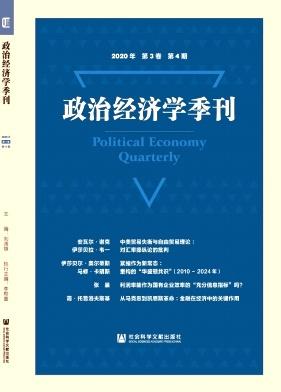Intellectual Capital Transformation Evaluating Model
引用次数: 70
Abstract
Purpose – This paper presents the framework that is developed for analysis of intellectual capital transformation into companies’ value, including an identification of the key factors of this process. Design/methodology/approach – The paper employs intellectual capital on the intersection of the value-based management (VBM) and resource-based view (RBV). Starting from a review of the results provided in the literature regarding intellectual capital evaluation and its link with firm performance, the system of proxy indicators related to IC transformation in both concepts was designed. The evaluation ability of the developed model was justified with the regression analyses. Findings – The detailed algorithm for intellectual capital evaluation in terms of the input-outcomes transformation. The Intellectual Capital Transformation Evaluating Model (ICTEM) provides a holistic view of intellectual resources as companies’ strategic investments. Research limitations/implications – The paper emphasizes that the ICTEM framework could be mostly applied for the analysis of a firm as a typical representative of the industry or the country. In that sense it is not applicable for specific features analysis of a company. Practical implications – The paper highlights the ICTEM as a tool of investments decision making mostly taking into account common trends, the prospects of industries and economies’ development. Originality/value – The ICTEM provides the ostensive framework of intellectual capital transformation analysis using a statistical approach.智力资本转化评价模型
目的-本文提出了用于分析智力资本转化为公司价值的框架,包括识别这一过程的关键因素。设计/方法论/方法-本文在基于价值的管理(VBM)和基于资源的观点(RBV)的交叉点上使用了智力资本。从回顾文献中关于智力资本评估及其与企业绩效的联系的结果开始,设计了两个概念中与集成电路转型相关的代理指标体系。通过回归分析验证了所建立模型的评价能力。研究结果-根据投入-产出转换的智力资本评估的详细算法。智力资本转化评估模型(ICTEM)提供了将智力资源作为企业战略投资的整体观点。研究局限性/影响-本文强调,ICTEM框架可以主要应用于作为行业或国家的典型代表的公司的分析。从这个意义上说,它不适用于公司的具体特征分析。实际意义-本文强调了ICTEM作为投资决策的工具,主要考虑到共同趋势,行业和经济发展的前景。独创性/价值- ICTEM使用统计方法提供了智力资本转化分析的显性框架。
本文章由计算机程序翻译,如有差异,请以英文原文为准。
求助全文
约1分钟内获得全文
求助全文

 求助内容:
求助内容: 应助结果提醒方式:
应助结果提醒方式:


